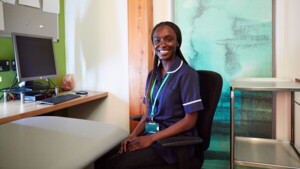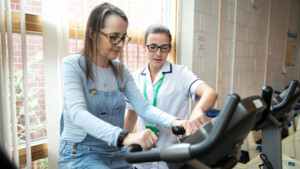Careers in Cancer
Career options in cancer
Oncology, or cancer care, includes many specialised roles. These roles often work together in a multidisciplinary team to diagnose, treat and support patients with cancer.
Other roles in cancer
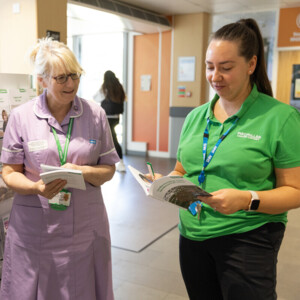
Supportive and assistive workforce
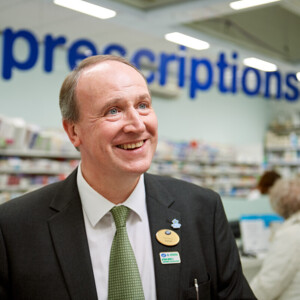
Wider clinical workforce
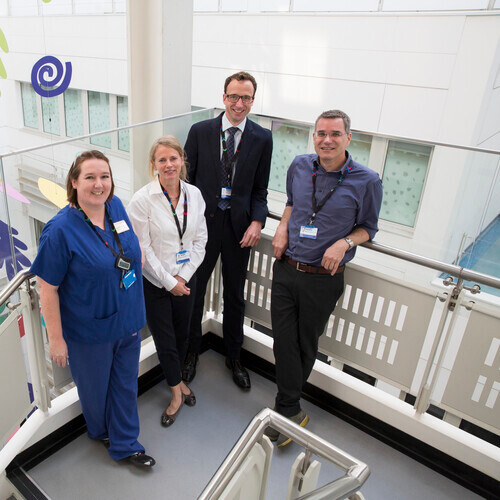
Researchers
What is a Macmillan Professional?
In 2024 the number of Macmillan Professionals continued to grow, with a total of 10,881 posts spanning a wide range of roles across the UK’s cancer workforce.
Macmillan funds, builds and maintains relationships with health care professionals and partner organisations across the UK. We do this to ensure that those living with cancer can get the best care wherever they are.
One way we support the improvement of cancer care services is through our Macmillan Professional roles. We currently support a network of over 10,000 Macmillan Professional who are employed across a broad range of roles.
Macmillan Professionals will have the Macmillan name in their role title. This means that the role:
- Is currently funded by Macmillan or,
- Was funded by Macmillan and is now funded through the organisation they work for. People in these roles are still Macmillan professionals.
-
Macmillan nurse
Macmillan nurses are specialist cancer nurses with experience and qualifications in cancer care. They help people living with cancer to understand their diagnosis and treatment options. They also support them through their cancer experience.
Macmillan nurses are often the main point of contact at the hospital. Sometimes they are called a key worker.
They are usually experts in certain types of cancer. And can give information about types of cancer, treatment options, and potential side effects.
Ria (pictured) is a Palliative Care Discharge Nurse. She said: "My role as a Macmillan professional is so vital to end of life care. Many people I speak to weren’t aware of their options, and that’s what I’m here to do – to help them understand their options and give them access to the right support."
Read her story to find out more about her role.
-
Macmillan support worker
Macmillan support workers are part of the wider cancer care team. They are sometimes called navigators or link workers. They act as a single point of contact for people living with cancer, and their relatives and carers.
Responsibilities in this role may include:
- Coordinating appointments
- Give advice and support
- Signposting to information and other services.
Claire (pictured) is a Macmillan Cancer Support worker based in South Yorkshire.
"I act a the patient's primary contact, I don't want them to feel like they're on their own. I try to help people live life as fully as they can.
"Part of my role involves community visits if patients are not able to get to hospital. I'm helping to free up the Clinical Nurse Specialist's time and expertise."
-
Macmillan GP
Macmillan GPs are practising doctors who work in the community. They spend an average of one day a week working to improve cancer care in primary care.
They do this by:
- helping their colleagues access cancer education
- sharing best practice
- and providing practical support to help them recognise and manage people with cancer better.
By providing support for GPs, we aim to help them provide the best support to people with cancer. We also want to help them to continue conversations about a person's needs following a diagnosis.
Dr Paul Parker (pictured), a Macmillan GP, was part of a team that developed educational packages that boosted cancer knowledge for GPs. “It’s great to work in an environment that encourages novel ways of working. There’s no organisation like Macmillan when it comes to rewarding innovation and creativity.”
We are currently not funding new Macmillan GP roles. We are still supporting Macmillan GPs who are funded by the organisations they work for.
-
Macmillan Allied Health Professional
Macmillan AHPs support people with cancer to improve their independence and wellbeing. They aim to help people to live as normal lives as possible during and after cancer treatment.
This may include:
- Helping people to adapt to and manage side effects of cancer and its treatment
- Providing emotional and practical support
- Giving advice and information.
The Upper Gastrointestinal Series (UGI) Dietitian Team at the Salford Royal NHS Trust (pictured) lead an innovative programme to improve patient outcomes for patients with oesophageal and gastric cancer. Rachel Leeson, Macmillan UGI Dietetic Assistant, said: “By seeing patients twice a day, I was able to reinforce and embed the dietetic advice they had been given and help optimise their recovery.”
Read our Allied Health Professionals Day blog to hear from some of the incredible Macmillan Allied Professionals working across the UK.
Frequently Asked Questions
-
How do I become a Macmillan Professional?
Most Macmillan Professional roles are not directly recruited by us. Instead, they are advertised and recruited through our partner organisations. We encourage those interested in working as a Macmillan Professional to apply for these roles. However, these roles may not always be available.
We are currently not funding new Macmillan GP roles. We are still supporting Macmillan GPs who are funded by the organisations they work for.
Whether you are in a Macmillan Professional role or another cancer role, you'll be making a difference in the lives of people with cancer. Below are some tips to help you purse or change to a career in cancer.
Research different cancer pathways
There are many different roles in cancer. The first step is to research what role you might be interested in. The NHS Health Careers website has useful information on different roles in the NHS, including cancer care roles.
Some roles may require a university degree or a diploma. Or you may be able to do an apprenticeship.
By exploring roles and the pathways into them you can decide what you might be interested in.
Review key requirements and competencies for the role you're interested in
If you find a role you are interested you should review the essential requirements and competencies for the role.
These could include:
- a university degree or healthcare qualification
- UK professional registration
- further specialist training or professional development diplomas
- ability to prove specialist knowledge in cancer.
Many job advertisements will include contact details for the recruiter. It may helpful to get in touch to have an informal chat about the role.
Get advice from peers
For those interested in moving to a cancer role, it can be helpful to get advice from those already in the field.
You could speak to a colleague in a cancer role to learn about their career journey. They may be able to point you to courses or opportunities you may not know about.
Attend courses and other learning opportunities
It can be helpful to sign up for online courses to learn more about cancer roles and to develop your skills.
The Macmillan Learning Hub hosts an array of online courses. It is open to any current healthcare professionals.
The NHS health careers website have a career planning tool. It includes a course finder, information on apprenticeships, career events and more.
The National Careers Service also provides information on different healthcare roles and pathways into them.
FutureLearn have different courses for those who want to better understand cancer. The courses cover a range of topics from diagnosis to management and treatment.
-
What skills do I need for a career in cancer?
The key skills needed for most roles in cancer care include:
- excellent communication skills for working with people affected by cancer and colleagues
- empathy, sensitivity and emotional resilience
- organisational skills and attention to detail
- the ability to work well under pressure
- the ability to work as part of a team.
Depending on the role and the level of seniority, you will need other specific skills. For example, as your career progresses you may need more managerial skills for leading teams.
-
What qualifications do I need for a career in cancer?
Most clinical roles in cancer require a degree approved by a regulatory body such as the General Medical Council or the Nursing and Midwifery Council.
For some roles, such as nursing, it is possible to take an apprenticeship and study alongside work. You can learn more about qualifications needed for specific role on the NHS's health careers website and by contacting universities.
Below is an example of what may be required for different healthcare roles.
Cancer doctor
To become a doctor specialising in cancer (oncologist) you will complete a 5 year degree at medical school. In most cases you will need A and A* grades in A levels including chemistry. Some medical schools will also ask for biology, maths or physics A levels. Research different medical schools to find out about their entry requirements.
It may be possible to complete a medical degree in 4 years if you already have another degree.
When you have completed your medical degree, you will go on to a 2 year foundation training. This is a paid role where you will usually have 6 different work placements.
After the foundation training you will then need to do at least 2 years Internal Medical Training. You can then apply for specialty training (ST) to become a medical or clinical oncologist.
Specialty training levels are referred to as ST1, ST2, ST3 etc. Each level correlates to a year of full-time training. You would usually enter an oncology programme at ST3. It is a minimum of 5 years to complete this training to become a consultant.
The Royal College of Radiologists and the Joint Royal College of Physicians Training Board have detailed information about different roles and training pathways for doctors.
Cancer nurse
Most people qualify to be a nurse by studying a degree in Nursing approved by the Nursing and Midwifery Council. To be accepted on to the degree you will need GCSEs and 3 A levels, including a life science such as biology. Contact different universities to find out which qualifications they accept.
It is also possible to train to be a nurse by doing a registered nurse degree apprenticeship. This combines academic study and on-the-job training and will usually take four years.
After completing your nursing qualification you would then get a job as a registered nurse.
If you are interested in cancer care, ask locally about opportunities to shadow some cancer nurses. You would then usually get your first job within cancer after some experience as a registered nurse on a ward or in the community.
For example, if you gained experience working on a breast unit you could then apply for a job as a Breast Cancer Nurse Specialist. You would then complete post-graduate education in breast cancer care once you had started in the role.
You can find more information about becoming a cancer nurse specialist on the Royal College of Nursing website.
Allied Health Professionals
Allied Health Professionals working in cancer care include radiographers, dieticians, occupational therapists, speech and language therapists, and physiotherapists. In some cases, such as therapeutic radiographer, you will work only in cancer settings.
To qualify for these roles you will need to study for a degree. If you already have a degree in another subject you can do a 2-year fast-track course for some professions. You will then register with a regulatory body such as the Health and Care Professions Council.
For some Allied Health Professional roles you can also qualify by doing an apprenticeship degree. After qualifying you'll continue your training through Continual Professional Development.




